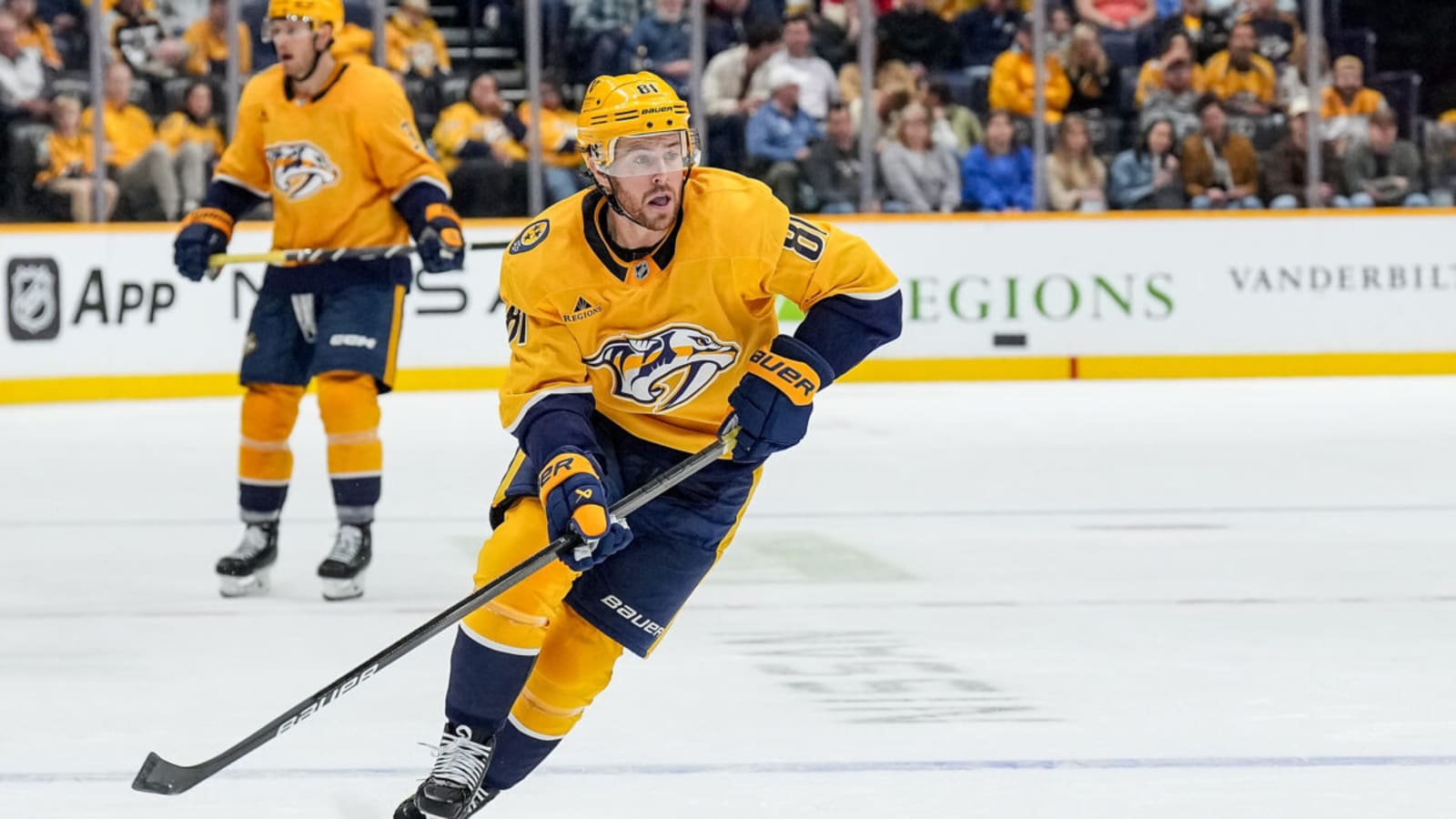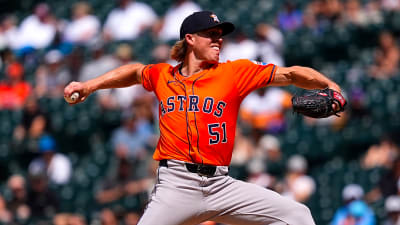
As the offseason rolls on, rumours are starting to swirl around potential veteran additions for the Montreal Canadiens. One name that has recently resurfaced is Jonathan Marchessault. After signing with the Nashville Predators last summer on a five-year deal worth $5.5 million annually, there are rumours that Marchessault might already become available and be open to a trade to Montreal.
Marchessault himself confirmed the Habs offered him a three-year contract last summer. He chose Nashville’s longer term, but with his current situation potentially in flux, the Habs are once again part of the conversation. Marchessault still produces offensively; he posted 56 points last season, but at age 34, and with four more years left on his deal, there’s real concern that his contract could turn into a liability.
The Habs are in a promising phase of their rebuild and must resist the temptation to deviate from their plan. While adding a veteran presence can help, Montreal must stay disciplined and follow three critical principles: age awareness and contract length.
Age Matters
The Canadiens are one of the youngest, most promising teams in the league. Their core is led by Nick Suzuki (25), Cole Caufield (24), Juraj Slafkovsky (21), Lane Hutson (21), Kaiden Guhle (23), and Ivan Demidov (19). That doesn’t even include top-tier prospects like David Reinbacher, Logan Mailloux, and Owen Beck, all under the age of 23. This team isn’t built to win today, they’re built to win in two to three years.
That’s why bringing in a 34-year-old winger with four years left on his deal is risky. Marchessault might help the team in the short term, but how effective will he be in the final years of that contract? The Canadiens need veterans who complement the development curve of their young core, not players who will decline just as the team begins to hit its competitive stride.
Veterans can provide leadership and playoff experience, but it has to be the right kind of veteran. Someone on a shorter-term deal, or with flexibility, is a much better fit for a team that’s still solidifying its long-term foundation.
Avoid Long-Term Deals for Aging Players
Across the league, some general managers have tried to get creative with the salary cap by offering longer-term deals in exchange for lower average annual values. The Tampa Bay Lightning are the perfect example. In recent years, they’ve given extended contracts to role players and aging veterans to reduce their cap hit in the short term. While that strategy might help today, it also clogs their books for years to come and severely limits their flexibility.
That’s not a model the Canadiens should replicate. Montreal currently has cap space and flexibility, two extremely valuable assets. Using that flexibility to hand out long-term contracts to older players would be a mistake. The front office appears to understand that. When Marchessault was a free agent last summer, Montreal offered a sensible three-year deal, which was declined. Five years, the term he accepted from Nashville, would never have made sense for the Habs. It still doesn’t.
There’s a difference between being aggressive and being reckless. Adding a productive veteran for two or three years is one thing. Committing to a 34-year-old for four seasons is another entirely. If Montreal truly believes in its current core, it needs to protect its future cap space for when those younger players reach their peak and demand bigger deals.
Cap Space Is a Tool
It’s easy to get excited when your team has cap space. This summer, the Canadiens will have more cap space than they had in previous years. But just because you can spend money doesn’t mean you should. Time and time again, we’ve seen teams splurge in free agency because they had the room, and then regret it almost immediately. Bad fits, declining production, long-term commitments… the list of cautionary tales is long. When the salary cap goes up, some general managers see it as permission to open the chequebook without considering the long-term impact. That mindset leads to dead money, buyouts, and desperation trades down the line. It also shortens your team’s winning window. During that time, you can’t spend that money on a potential addition that could have helped you win.
Montreal is in a position of strength. They have financial flexibility, an exciting prospect pool, and a core of players who haven’t even hit their prime. That’s why it’s critical to avoid overpaying for the wrong type of veteran, especially one who doesn’t align with the team’s competitive window and culture.
The Canadiens need to use their cap space strategically, to retain their key young players, to add complementary pieces when the time is right, and to take advantage of other teams that are stuck in cap hell. They should not be the team handing out long-term deals to fading stars.
It’s tempting to speed up the process when a player like Marchessault shows interest in your team. He’s a Stanley Cup winner and a Conn Smythe winner, still producing at a decent clip, and clearly wants to be part of something meaningful. But the Canadiens must remain disciplined.
Montreal is building something sustainable. The foundation is there: a strong young core, cap flexibility, and a deepening pipeline of NHL-ready talent. Adding the right veterans can accelerate the process, but only if the term and fit make sense. Management seems to understand that. Fans should hope they continue to resist the temptation to overspend or overcommit.
More must-reads:
- Two-time Stanley Cup champion announces retirement
- Rangers re-sign former first-round pick
- The 'First-overall NHL Draft picks' quiz
Breaking News
Trending News
Customize Your Newsletter
 +
+
Get the latest news and rumors, customized to your favorite sports and teams. Emailed daily. Always free!








